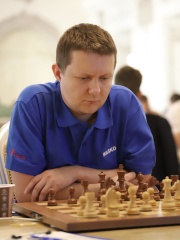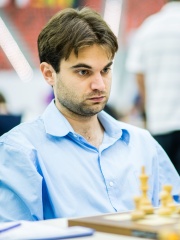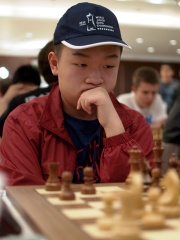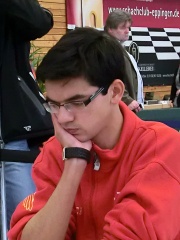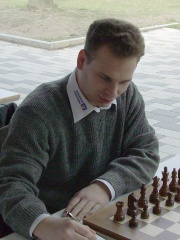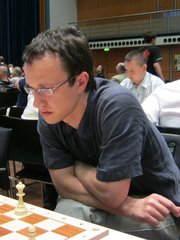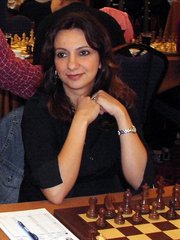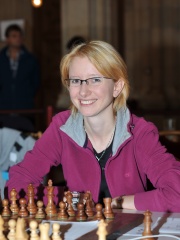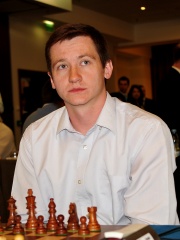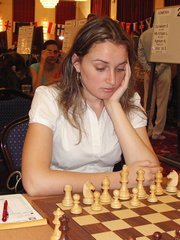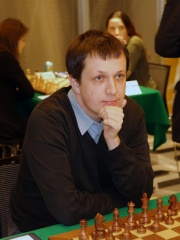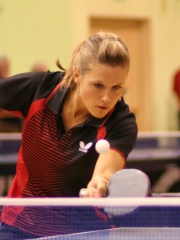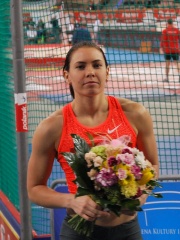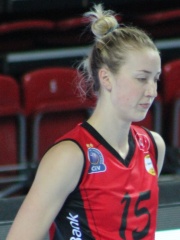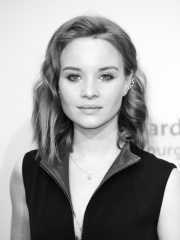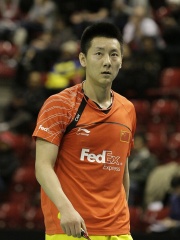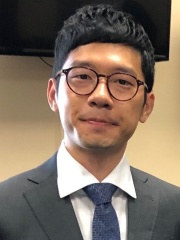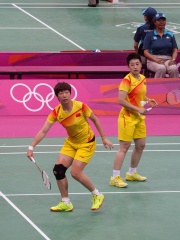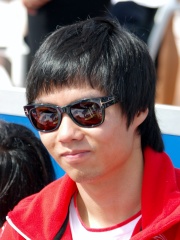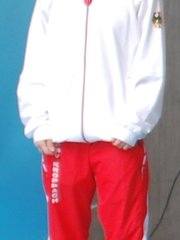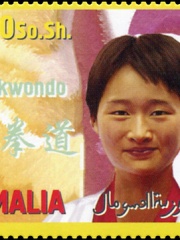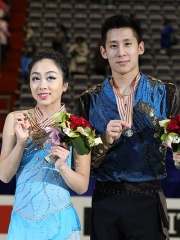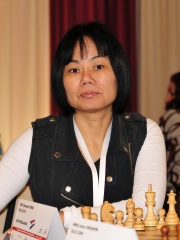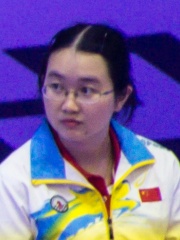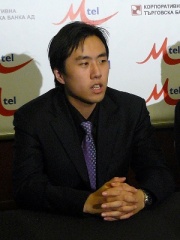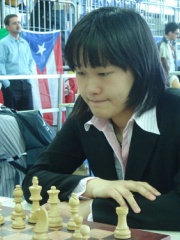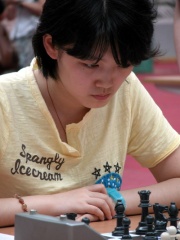CHESS PLAYER
Wang Hao
1989 - Today
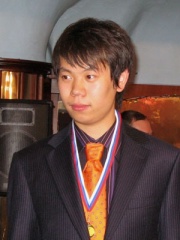
 Wang Hao
Wang Hao
Wang Hao (Chinese: 王皓; pinyin: Wáng Hào; born August 4, 1989) is a Chinese chess grandmaster. In November 2009, Wang became the fourth Chinese player to break through the 2700 Elo rating mark. In 2019, he qualified for the 2020 Candidates Tournament by winning the FIDE Grand Swiss Tournament 2019, making him the second Chinese player to qualify for a Candidates Tournament. Wang announced his retirement from professional chess at the end of the Candidates tournament in 2021, citing health issues. Read more on Wikipedia
His biography is available in 29 different languages on Wikipedia. Wang Hao is the 392nd most popular chess player (up from 393rd in 2024), the 1,431st most popular biography from China (up from 1,441st in 2019) and the 15th most popular Chinese Chess Player.
Memorability Metrics
Page views of Wang Hao by language
Among CHESS PLAYERS
Among chess players, Wang Hao ranks 391 out of 461. Before him are Alexander Areshchenko, Sam Shankland, Wei Yi, Anish Giri, and Péter Ács. After him are Vadim Zvjaginsev, Anna-Maria Botsari, Eva Moser, Alexei Barsov, Zahar Efimenko, Inna Gaponenko, and Radosław Wojtaszek.
Most Popular Chess Players in Wikipedia
Go to all RankingsAlexander Areshchenko
1986 - Present
HPI: 40.62
Rank: 386
Sam Shankland
1991 - Present
HPI: 40.57
Rank: 387
Wei Yi
1999 - Present
HPI: 40.53
Rank: 388
Anish Giri
1994 - Present
HPI: 40.49
Rank: 389
Péter Ács
1981 - Present
HPI: 40.43
Rank: 390
Wang Hao
1989 - Present
HPI: 40.42
Rank: 391
Vadim Zvjaginsev
1976 - Present
HPI: 40.39
Rank: 392
Anna-Maria Botsari
1972 - Present
HPI: 40.32
Rank: 393
Eva Moser
1982 - 2019
HPI: 40.32
Rank: 394
Alexei Barsov
1966 - Present
HPI: 40.29
Rank: 395
Zahar Efimenko
1985 - Present
HPI: 40.20
Rank: 396
Inna Gaponenko
1976 - Present
HPI: 40.19
Rank: 397
Radosław Wojtaszek
1987 - Present
HPI: 40.06
Rank: 398
Contemporaries
Among people born in 1989, Wang Hao ranks 788. Before him are Shiho Kohata, Jessica Williams, Sergei Zenjov, Jonathan Viera, Ahmed Akaïchi, and Oto Nemsadze. After him are MamaRika, Natalia Partyka, Alina Talay, Kimberly Hill, Reynaldo, and Sonja Gerhardt.
Others Born in 1989
Go to all RankingsShiho Kohata
SOCCER PLAYER
1989 - Present
HPI: 40.47
Rank: 782
Jessica Williams
ACTOR
1989 - Present
HPI: 40.46
Rank: 783
Sergei Zenjov
SOCCER PLAYER
1989 - Present
HPI: 40.45
Rank: 784
Jonathan Viera
SOCCER PLAYER
1989 - Present
HPI: 40.44
Rank: 785
Ahmed Akaïchi
SOCCER PLAYER
1989 - Present
HPI: 40.44
Rank: 786
Oto Nemsadze
SINGER
1989 - Present
HPI: 40.43
Rank: 787
Wang Hao
CHESS PLAYER
1989 - Present
HPI: 40.42
Rank: 788
MamaRika
SINGER
1989 - Present
HPI: 40.38
Rank: 789
Natalia Partyka
TABLE TENNIS PLAYER
1989 - Present
HPI: 40.37
Rank: 790
Alina Talay
ATHLETE
1989 - Present
HPI: 40.36
Rank: 791
Kimberly Hill
VOLLEYBALL PLAYER
1989 - Present
HPI: 40.36
Rank: 792
Reynaldo
SOCCER PLAYER
1989 - Present
HPI: 40.36
Rank: 793
Sonja Gerhardt
ACTOR
1989 - Present
HPI: 40.35
Rank: 794
In China
Among people born in China, Wang Hao ranks 1,427 out of 1,610. Before him are Jiao Liuyang (1991), and Jiang Lin (1981). After him are Chen Jin (1986), Nathan Law (1993), Yu Yang (1986), Ma Qinghua (1987), Tian Liang (1979), Wu Jiaduo (1977), Gu Jun (1975), Meng Guanliang (1977), Wu Jingyu (1987), and Sui Wenjing (1995).
Others born in China
Go to all RankingsJiao Liuyang
SWIMMER
1991 - Present
HPI: 40.43
Rank: 1,425
Jiang Lin
ATHLETE
1981 - Present
HPI: 40.42
Rank: 1,426
Wang Hao
CHESS PLAYER
1989 - Present
HPI: 40.42
Rank: 1,427
Chen Jin
BADMINTON PLAYER
1986 - Present
HPI: 40.42
Rank: 1,428
Nathan Law
SOCIAL ACTIVIST
1993 - Present
HPI: 40.41
Rank: 1,429
Yu Yang
BADMINTON PLAYER
1986 - Present
HPI: 40.40
Rank: 1,430
Ma Qinghua
RACING DRIVER
1987 - Present
HPI: 40.38
Rank: 1,431
Tian Liang
ACTOR
1979 - Present
HPI: 40.35
Rank: 1,432
Wu Jiaduo
TABLE TENNIS PLAYER
1977 - Present
HPI: 40.35
Rank: 1,433
Gu Jun
BADMINTON PLAYER
1975 - Present
HPI: 40.33
Rank: 1,434
Meng Guanliang
ATHLETE
1977 - Present
HPI: 40.32
Rank: 1,435
Wu Jingyu
ATHLETE
1987 - Present
HPI: 40.31
Rank: 1,436
Sui Wenjing
SKATER
1995 - Present
HPI: 40.30
Rank: 1,437
Among CHESS PLAYERS In China
Among chess players born in China, Wang Hao ranks 15. Before him are Qin Kanying (1974), Peng Zhaoqin (1968), Tan Zhongyi (1991), Zhang Zhong (1978), Li Chao (1989), and Wei Yi (1999). After him are Bu Xiangzhi (1985), Zhao Xue (1985), Ni Hua (1983), Ruan Lufei (1987), Lei Tingjie (1997), and Shen Yang (1989).
Qin Kanying
1974 - Present
HPI: 43.82
Rank: 9
Peng Zhaoqin
1968 - Present
HPI: 43.29
Rank: 10
Tan Zhongyi
1991 - Present
HPI: 43.12
Rank: 11
Zhang Zhong
1978 - Present
HPI: 43.09
Rank: 12
Li Chao
1989 - Present
HPI: 41.38
Rank: 13
Wei Yi
1999 - Present
HPI: 40.53
Rank: 14
Wang Hao
1989 - Present
HPI: 40.42
Rank: 15
Bu Xiangzhi
1985 - Present
HPI: 39.01
Rank: 16
Zhao Xue
1985 - Present
HPI: 37.12
Rank: 17
Ni Hua
1983 - Present
HPI: 37.06
Rank: 18
Ruan Lufei
1987 - Present
HPI: 36.46
Rank: 19
Lei Tingjie
1997 - Present
HPI: 35.46
Rank: 20
Shen Yang
1989 - Present
HPI: 35.28
Rank: 21
